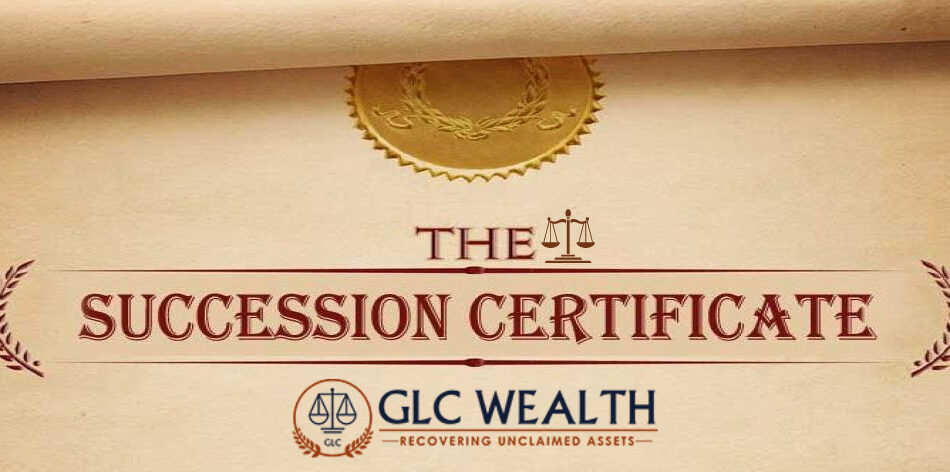
What is a Succession Certificate and procedure of obtaining it?
Every person is destined to die at some point of time in their life as death finds its way to all. There can be two main situations after the death of a person who had an estate or some property(s) in their name. He may either die after preparing a Will in the name of any person or group of persons or he may die intestate i.e., without leaving a will behind. The role of the Succession certificate generally comes into play in the latter case.
It is highly probable that he must have owned some movable or immovable properties in his name and might have given or obtained some loan or debts from or to any third party respectively. It is in the interest of justice, equity, and good conscience that those third parties shouldn’t suffer the losses from the death of the testator. There will be a gross injustice if the debts and securities of the third parties aren’t settled. With the help of a Succession Certificate, a person is empowered to undertake the settlements of debts and securities on behalf of the testator. This will save innocent third parties from suffering the wrath of injustice.
What is a Succession Certificate?
A Succession Certificate is a legal document that provides authority to any such person who obtains it from the court of law to collect or pay debts and securities which are payable or accrued in the testator’s name. Since the testator is dead, now the person, who obtains the Succession certificate from the court, steps into the shoes of the testator and becomes legally eligible to settle down the debts and securities on behalf of the testator.
A succession Certificate is a document issued by a court of competent jurisdiction to a person who is able to prove in the court that he/she is the rightful successor of the deceased person. This Succession certificate empowers the successor to realize the debts and securities of the deceased person. But this doesn’t give him the inherent right of Succession over the claimed property of the deceased person because it doesn’t determine the rights, title, or interest of the deceased person to the whole or part of the property.
PROCEDURE FOR OBTAINING Succession Certificate?
A Succession certificate is issued by a district court of proper civil jurisdiction. The process of obtaining it from the court is discussed below:
1) Preparation of Documents
The first step before filing the petition for Succession Certificate is to do the documentation. There are certain documents that are required to be filed alongside the petition of Succession Certificate that is mentioned below:
a) Death certificate
b) Identity Card
c) Ration card
d) Written/prescribed application form
e) Proof of residence of the deceased person (Voter ID / DL / Bank Pass Book etc.)
2) Petition for Succession Certificate
A petition for Succession Certificate is always filed by the legal heirs of the deceased. The petition is filed in a prescribed format in a court of proper jurisdiction. The petition must contain the below-mentioned details:
a) Time, date, and place of the death of the deceased.
b) Details pertaining to other legal relatives or heirs.
c) Residence or details of properties of the deceased at the time of death within which Judge the jurisdiction falls.
d) Rights of the petitioner
e) Absence of any impediment to the grant of the certificate.
f) Identification documents like Ration Cards or Passports.
g) List of the debts or securities for which the certificate is applied for.
h) No objection certificates from other legal heirs
3) Court fees
As per what is pleaded in the prayer, an amount of court fees is decided and it is to be borne by the Dominus-lists (petitioner).
4) Newspaper Notice
Once the application is filed, it will be examined and verified by the court, and will make it public by getting it published in a national newspaper. The court will also notify the other heirs and the respondent.
5) Issuance of Succession certificate
Even though a ‘no objection certificate’ is filed by the petitioners, the court will wait for 45 days to check the authenticity of the petition and if no objection is raised within 45 days, the court will grant the Succession certificate to the petitioner(s).
6) Signing of Indemnity Bond
It is the discretion of the court to ask the petitioner to sign an indemnity bond. It is a precautionary step that is taken by the court to prevent any misuse of the Succession Certificate.
CONCLUSION
A succession Certificate is a legal document that is issued by a court of law to the applicant for claiming movable properties of the deceased. This document is mainly issued in cases where the testator dies leaving behind his assets but no will. The court is cautious while granting this certificate to the applicant as it is for the court to ensure that no injustice shall be done to any legal heir to the prejudice of the court.
